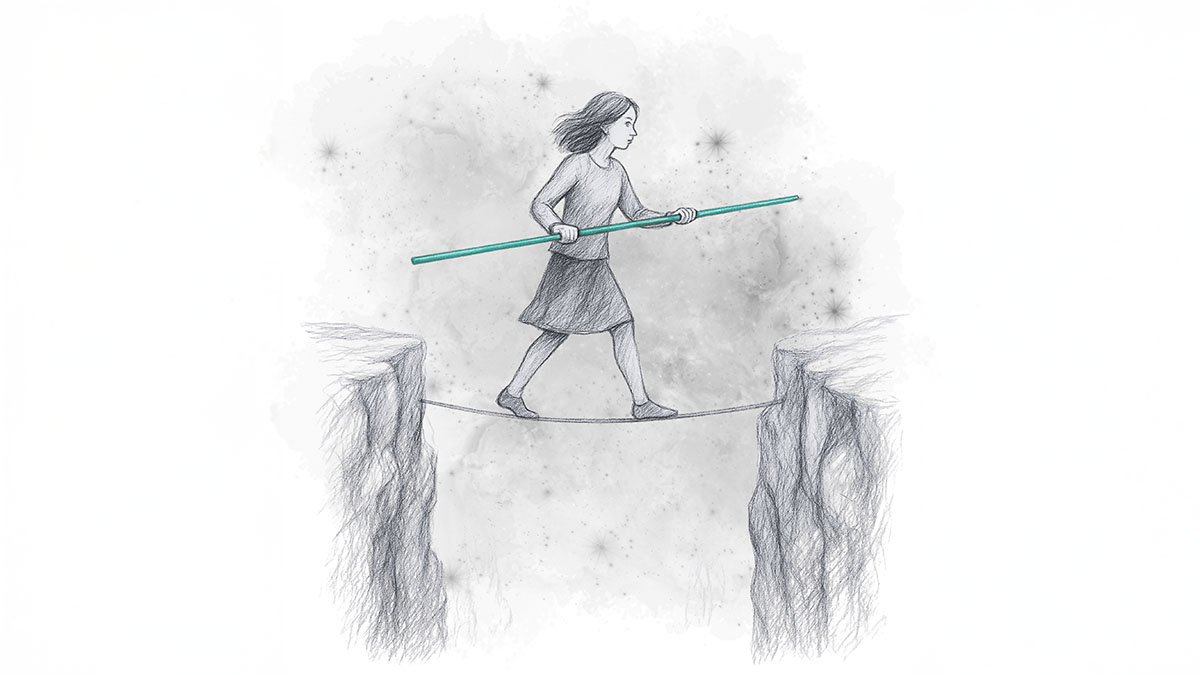Saying sorry to our kids may seem like we’re giving them a reason to disobey us. The reality, however, is that it strengthens our bond.
Apologising can often be a difficult thing to do, especially if it’s to our own children. We’re meant to be the adults, the knowledgeable ones, the ones with the authority. No wonder it can go against every fibre of our being to tell our kids, “Sorry, I did the wrong thing.”
I don’t remember too many open conversations with adults about their shortcomings when I was a child. The impression I got was that adults were always right and children were simply meant to obey whatever they said.
It’s largely why I often struggle when it comes to admitting fault to my own child. It challenges what I perceive an adult should be and the impression I believe my child should have of me.
The apology myths
There are two main—mostly erroneous—reasons why we can find it difficult to apologise, particularly to our children.
1. It diminishes our authority
When we admit fault, we worry it will make our children realise we aren’t always in control and we’re not always right. We think it causes them to question everything else we do and every other decision we make.
Our children don’t need to see us as perfect, infallible human beings. It creates an impossible goal for both them and ourselves, causing stress as we try to be something we can never be. We all make mistakes—the key is to learn from them.
Our authority doesn’t come from never being wrong, it comes from respect. Children have a strong sense of justice. Apologising to them when we’ve made a mistake helps prevent resentment from simmering and stops feelings of unfairness from building.
Children need three things in their lives: Connection, competence and control. When we apologise after doing something wrong, we give them all three, we tell them they matter and we receive respect in return.
2. It makes us vulnerable
It can feel like everything we’ve done, everything we’ve fought for was just a pointless waste of time when we admit there is a different way. Our ego and pride want us to be correct. Apologising can make us feel small, stupid or insignificant.
Worst of all, when we say sorry to our children, we are asking them to forgive us, putting us in a vulnerable position where they can hold something against us.
Yet, apologising to our children can be one of the most powerful, healing gifts we can ever give to our children. It repairs a broken relationship. It heals a wound. And most of the time, our children don’t want to hold anything against us—they simply want to be with us.
Saying sorry to our children when we are wrong, apologising and really meaning it can make them feel better without taking anything away from us.
“Kids love it when their parents apologise to them, and not because they’re thinking that they won and their parents lost,” writes psychologist Janet Sasson Edgette in Psychology Today. “They love it because, frequently, it is often one of too few acts of genuine grace and respect expressed within families.”
Join Faith and I as we discuss why and when we should say sorry on the Mums At The Table podcast, Life in the Grey.
What saying sorry really does
My dream is for my child to grow up to be a kind and empathetic person, and I believe one of the ways to teach him that is by readily apologising to him.
When I say sorry, I am acknowledging his feelings. I’m also recognising my actions have an impact on him. By apologising, I’m telling him I care about how he feels, validating him and teaching him how to do the same to someone else.
“Rupture and repair” is a parenting concept that can help strengthen our relationships with our children and its key idea is our readiness to apologise to our children.
“A rupture is those moments where we lose the emotional connection with our child. It might be when we yell, shut down, withdraw and our child feels this sense of loss of safety,” says Dr Natasha Ching when I interviewed her. “These moments are inevitable. We’re human. Let’s be real—what matters far more than the rupture itself is the intentional repair.
“So what is the repair? The intentional act of reconnecting, taking responsibility and showing our child that they are still safe, they’re loved and they are not to blame.”
Apologising to our children—and meaning it—rebuilds the safe harbour between parent and child. It teaches them it’s safe to make mistakes, how to resolve conflict and to be accountable for their actions.
“In the absence of repair, [kids] really only have two options for how to regulate and feel safe again,” says Dr Becky Kennedy in a podcast with Dr Andrew Huberman. “They can self-blame. ‘It’s all my fault.’ Which is why I feel like most adults, when they have a hard time, they tell themselves, like, ‘It’s my fault. I’m not good enough.’ It’s like the legacy of that story from childhood.
“Or they use self-doubt. ‘Maybe that didn’t happen. Maybe I overreacted. Maybe I can’t trust myself.’ Again, it leads to adults who basically say, like, ‘Did I overreact or let me call five friends. Let me see if they think what my boyfriend did was a big deal,’ because they can’t trust themselves.”
A note about over-apologising
While it’s good to apologise to our children, this should be done when we’ve caused hurt or made a mistake. Apologies shouldn’t be about things beyond our control (like the weather) or for setting healthy boundaries (like brushing their teeth).
If parents say sorry too often, it can lose its impact or even its authenticity. For young children, it may even lead to confusion or make them feel responsible for your emotions.
We should say sorry to our kids, but only when it’s appropriate and called for.
What a real apology looks like
Sometimes, I find myself apologising to my son, but not really:
- “I’m sorry I got angry, but you really should have XYZ.”
- “I’m sorry I didn’t listen, but couldn’t you have XYZ?”
- “I’m sorry I said ABC, but it’s not my fault you XYZ.”
Our children can tell the difference. We can tell the difference.
It’s not an apology when we try to justify our actions or if we tell them to behave differently so we don’t have to react the way we did.
The key to apologising is in how our actions made them feel and taking responsibility for making them feel that way.
This doesn’t mean you shouldn’t explain what caused you to act the way you did. In fact, it’s a very good idea to help them realise why a rupture or a breakdown happened, but never make it a blame game.
- “I’m sorry I yelled. I’m working on managing my emotions and next time, I’m going to try to stay calm even when I’m frustrated.”
- “I’m sorry I didn’t listen. I’m very stressed that I couldn’t finish my work and so I pushed you away without listening. Next time, I’ll try to take the time out to really listen to you or if I’m really busy, I’ll let you know and find a time when I can listen.”
- “I’m sorry I said you did it when you didn’t. I messed up. Next time, I’ll try not to jump to conclusions.”
There are a few other key components to a real apology:
- Talk about the next time. This provides the repair.
- Promise you will try, not that it will never happen again because let’s face it, it probably will. Teach our kids life is about learning and trying to do better—and make sure you really do.
Finally, give children the time to process and respond after you’ve said sorry. They may still need to work through their feelings so don’t expect them to forgive you immediately. However, it’s crucial to move on without rehashing everything—and once you’ve moved on, try not to revisit the issue again.
Connection counts
Saying sorry to our children is one of the most important things we can do to ensure our relationship with them stays strong. It builds trust, strengthens their emotional intelligence, and teaches them responsibility and empathy. After all, children are excellent copycats. Their ability to easily apologise is dependent on how readily they see us do it.
Tune in to the Life in the Grey podcast

Life isn’t always black and white. Life in the Grey is a Mums At The Table podcast where we explore the psychological factors that shape our relationships, be that as a parent, a partner or a peer. And don’t worry—it’s short because we ain’t got time for fluff. Expect practical takeaways that you can apply to your own life, whether it’s navigating parenting challenges or finding balance amidst life’s demands. Join us each month as we share stories, insights and reflections that encourage personal growth and foster a sense of connection in our community.
How helpful was this article?
Click on a star to rate it!
0 / 5. 0
Be the first to rate this post!
Melody Tan
Related posts
Subscribe
Receive personalised articles from experts and wellness inspiration weekly!

